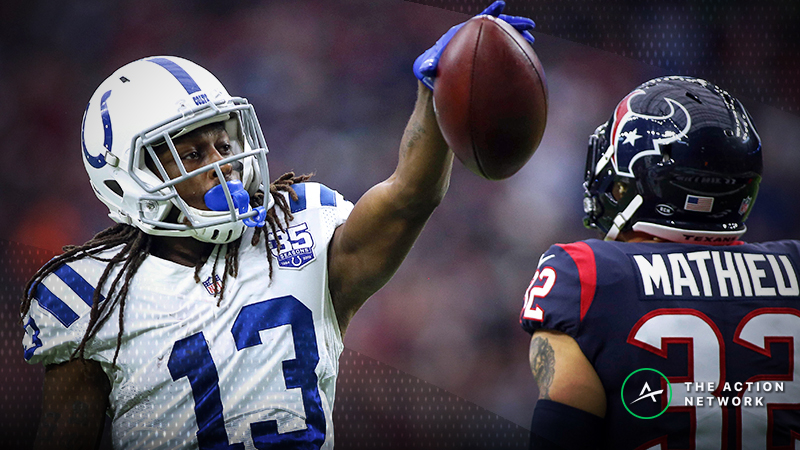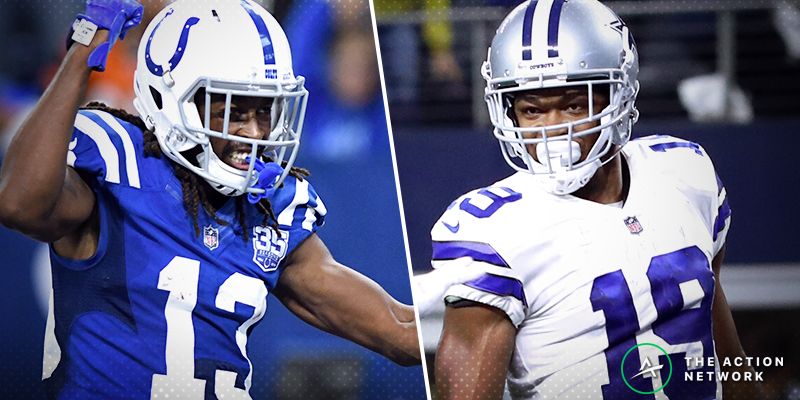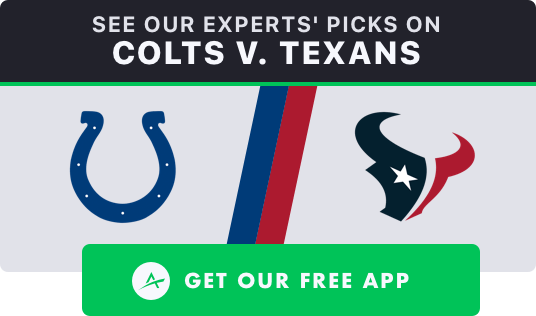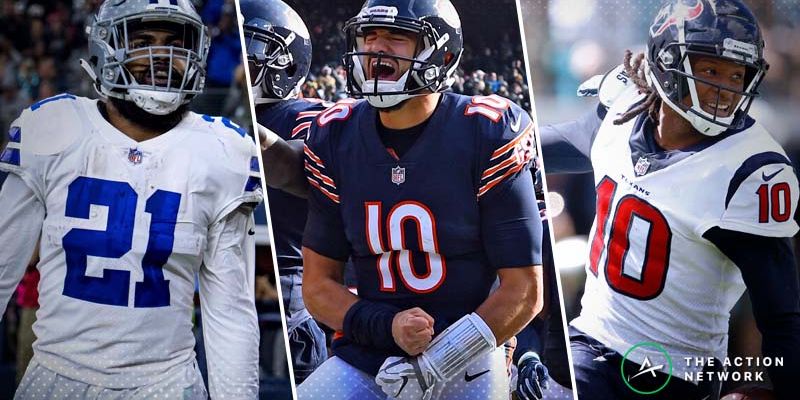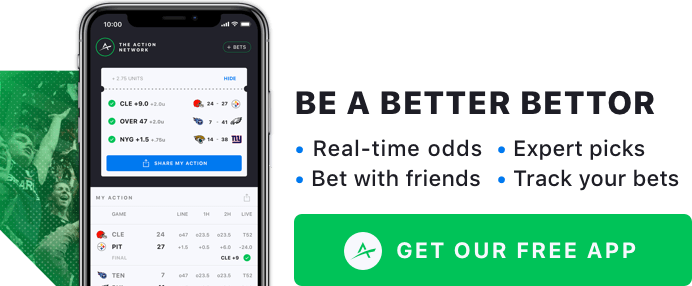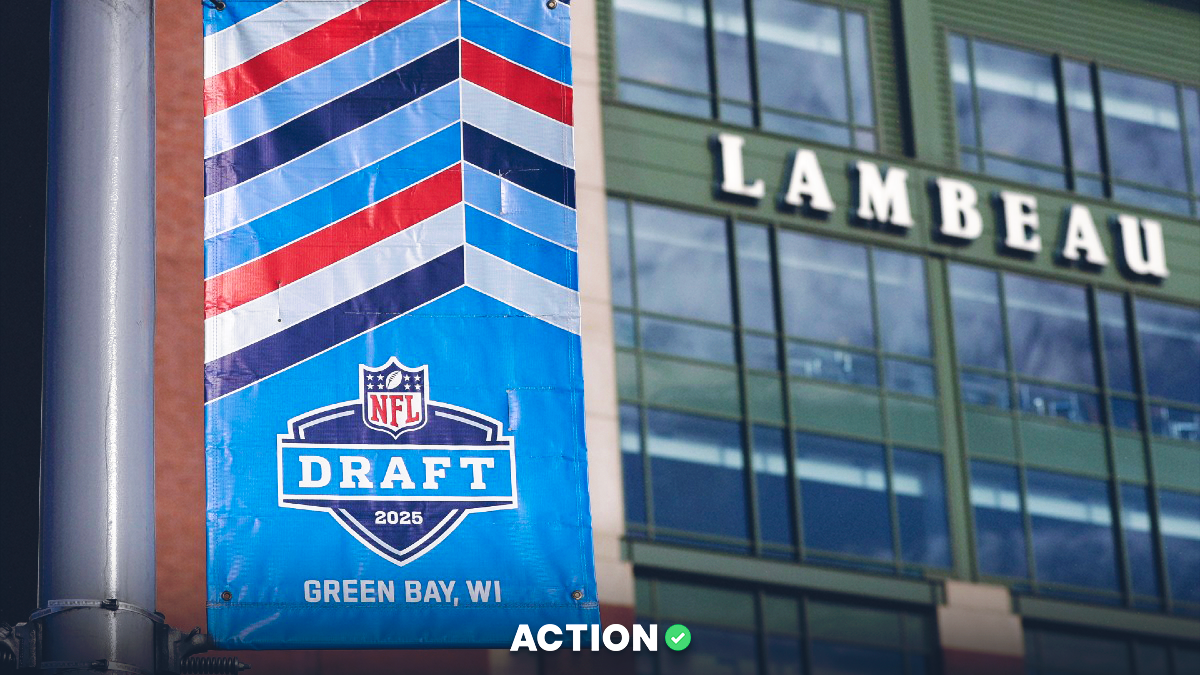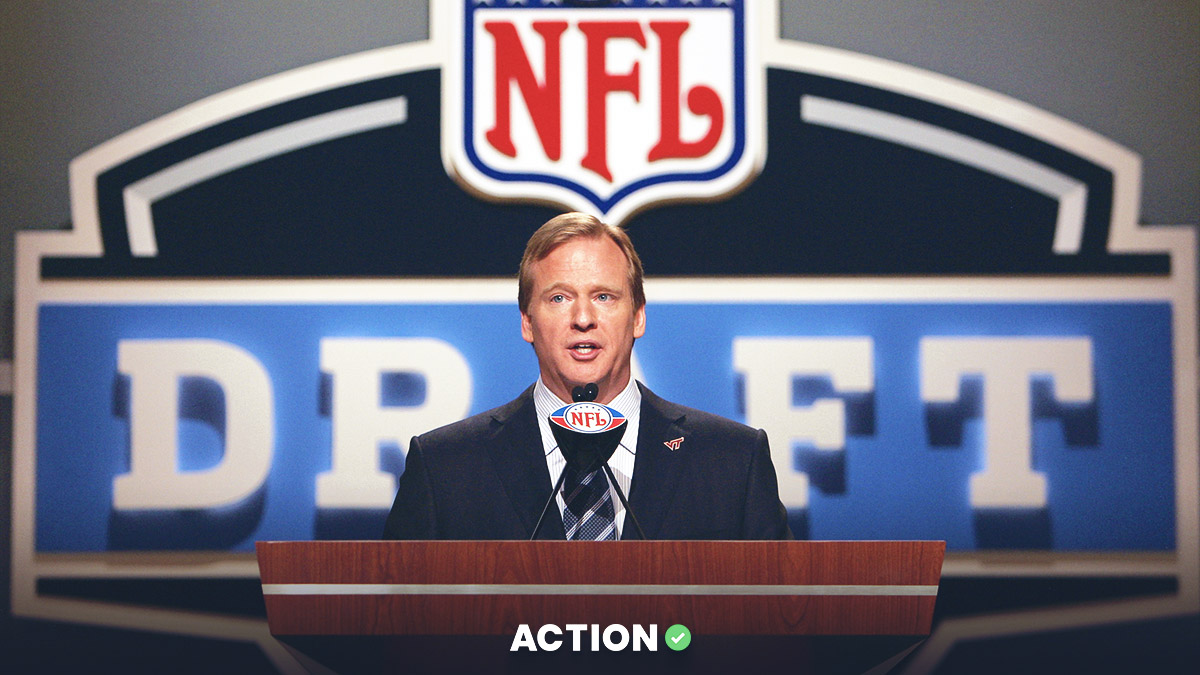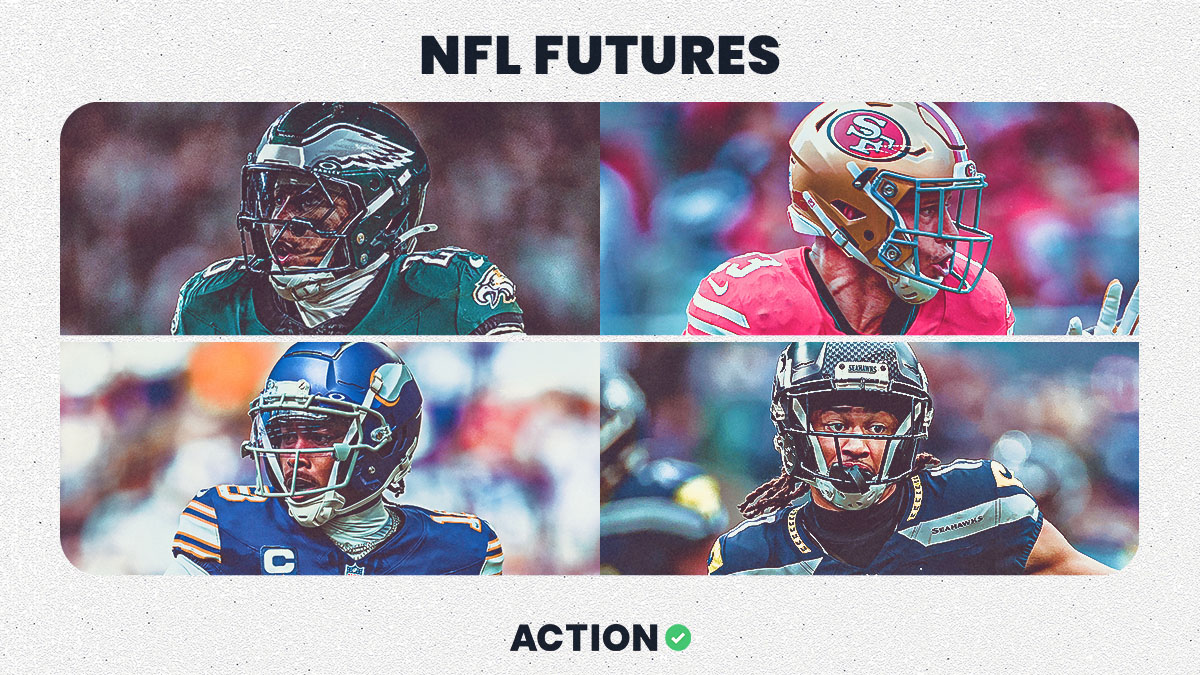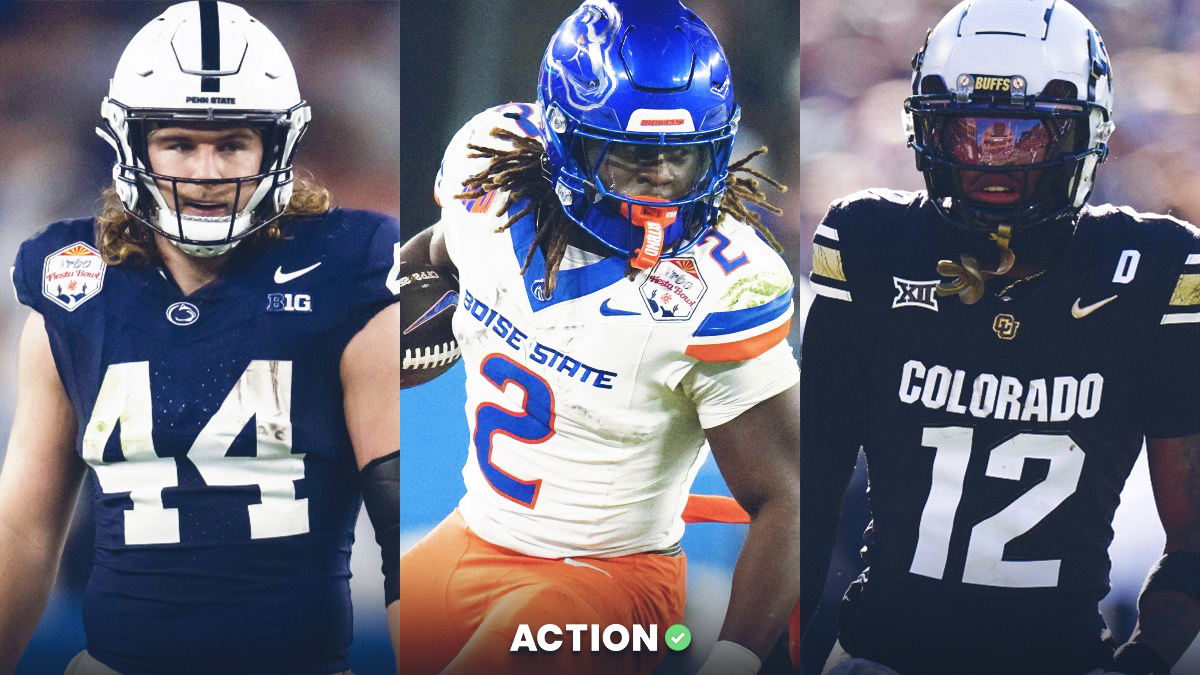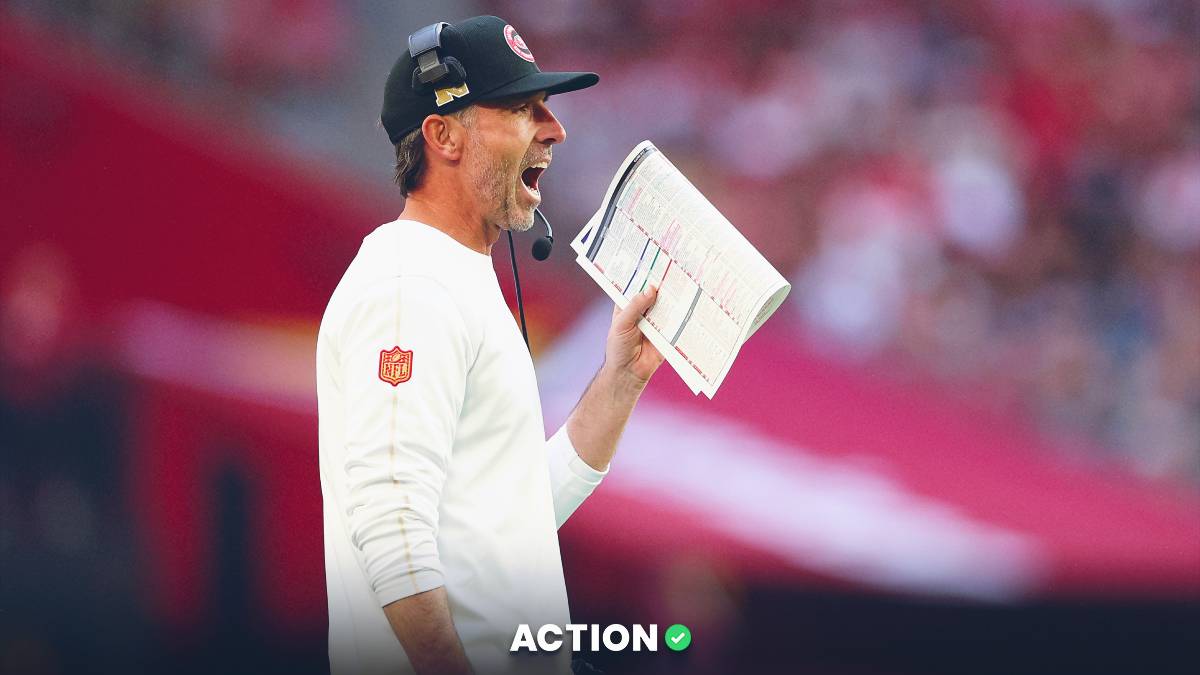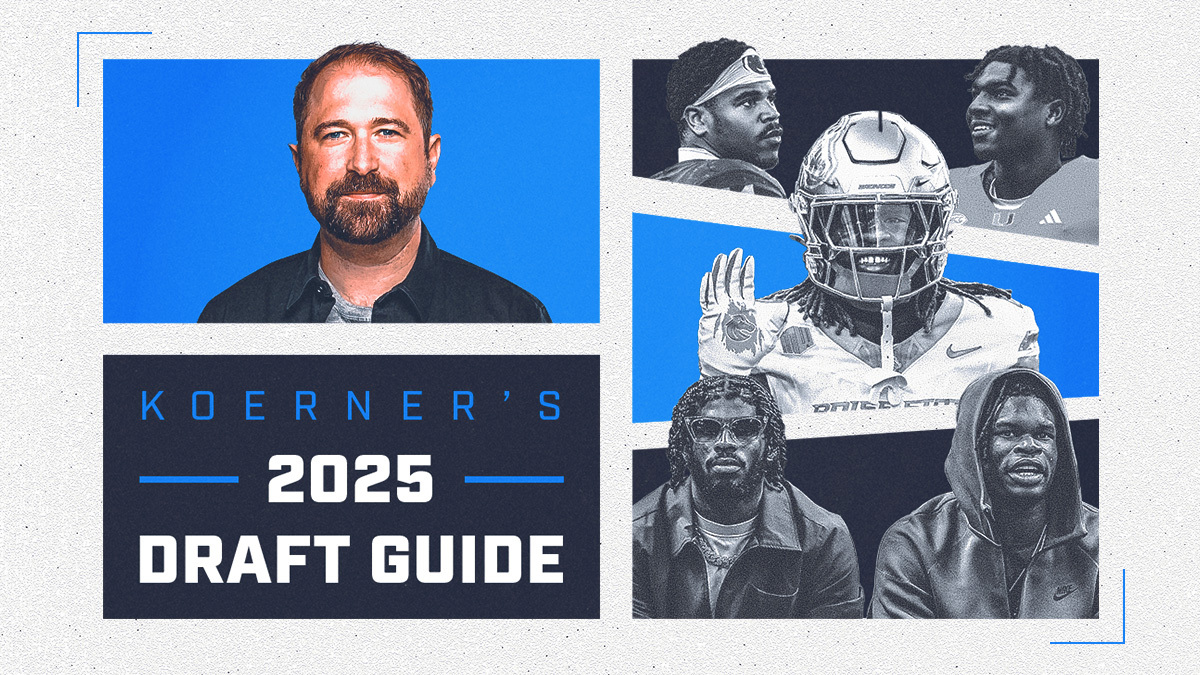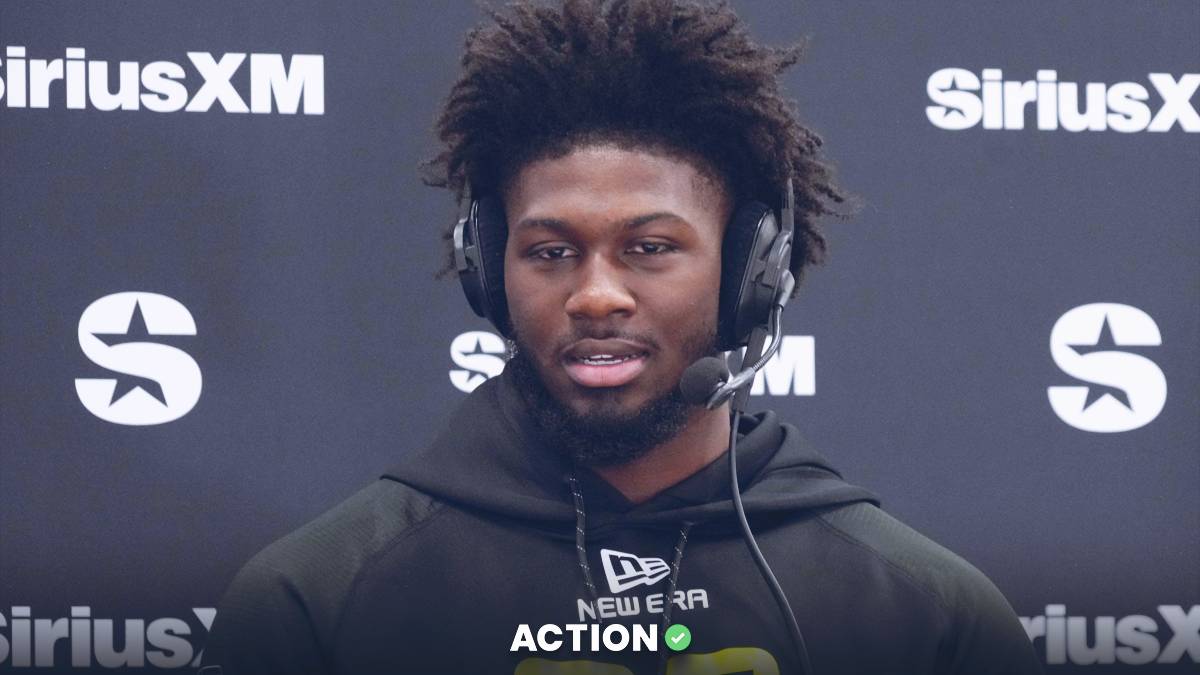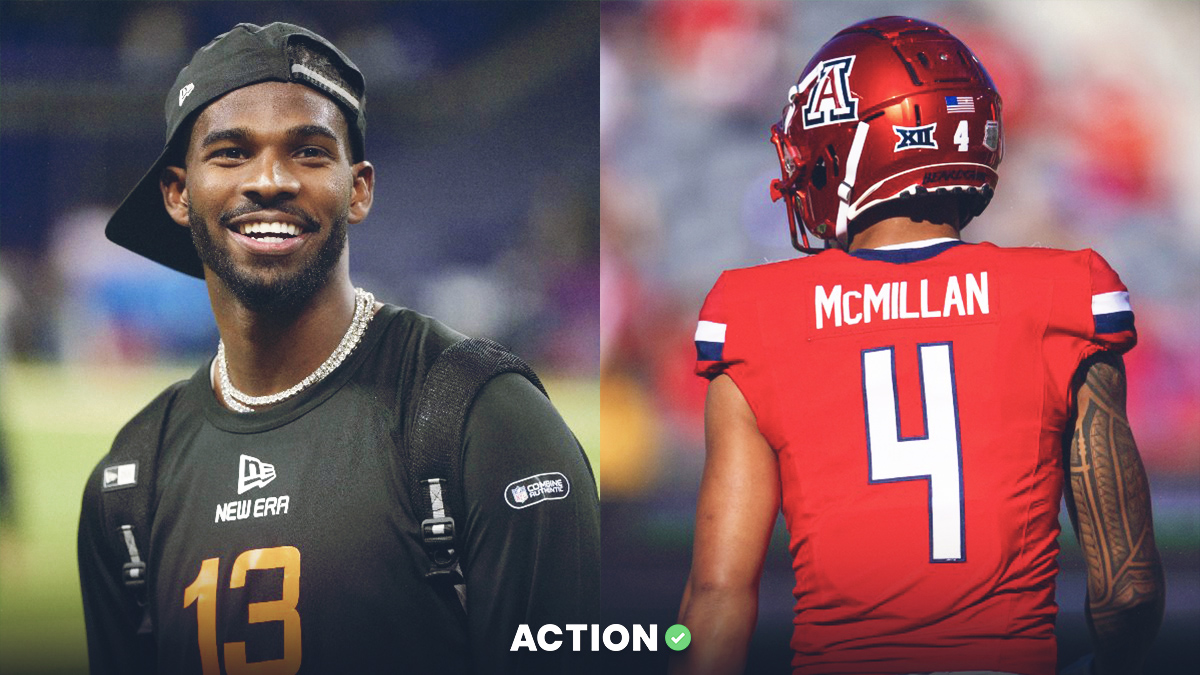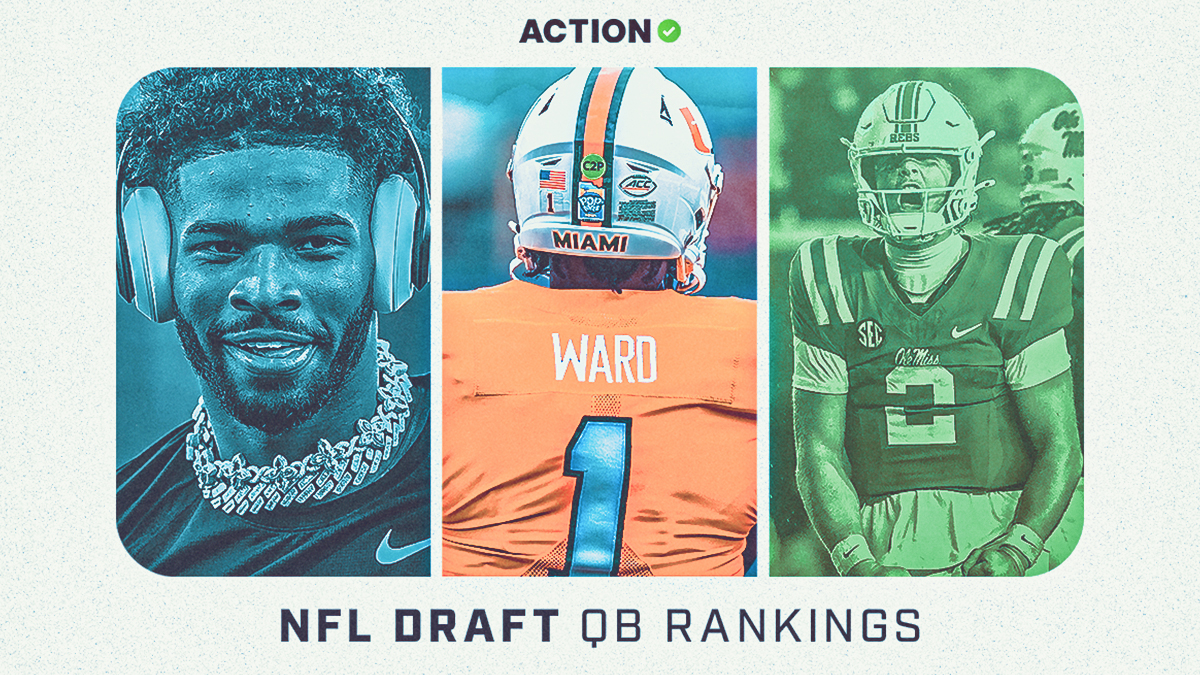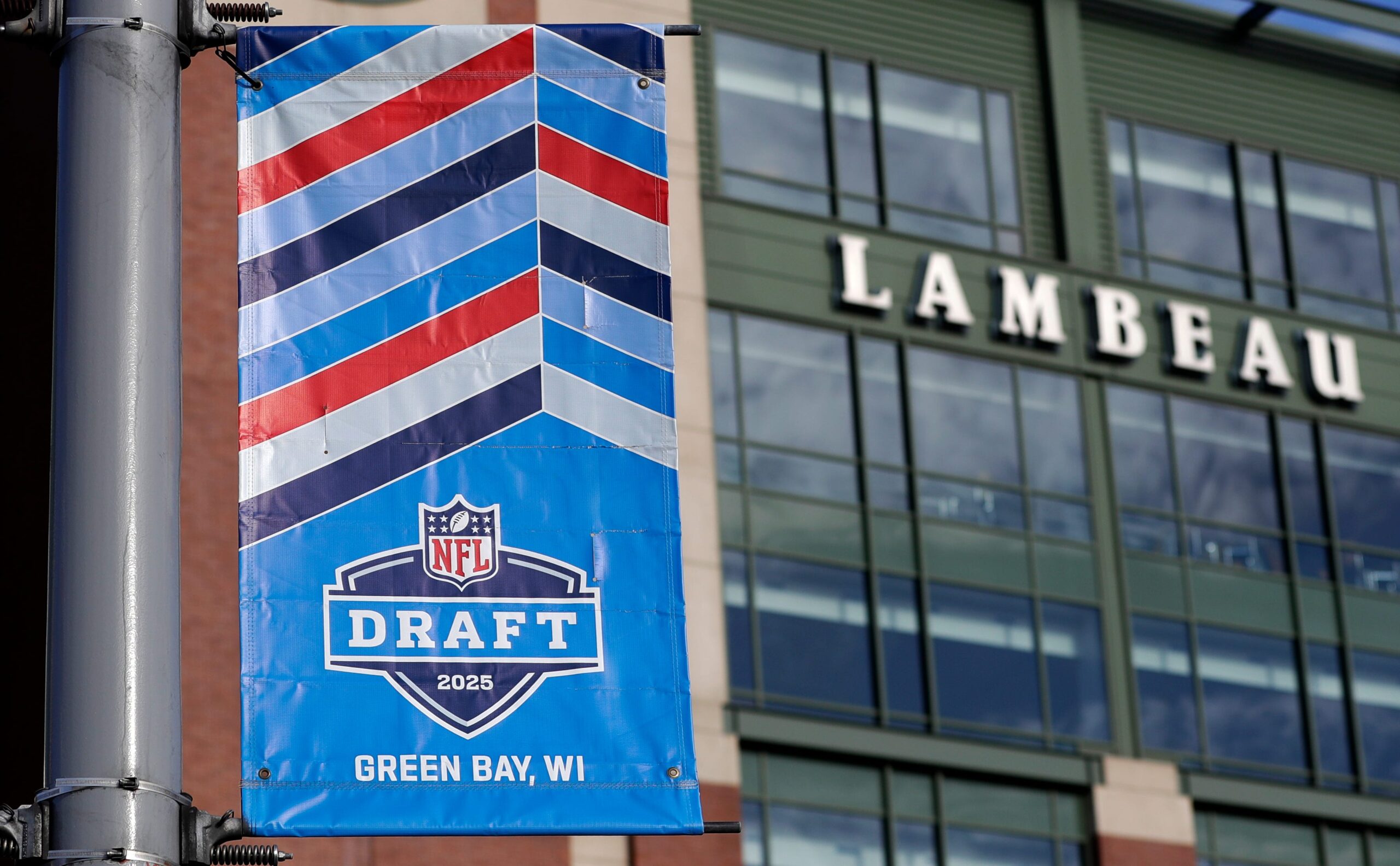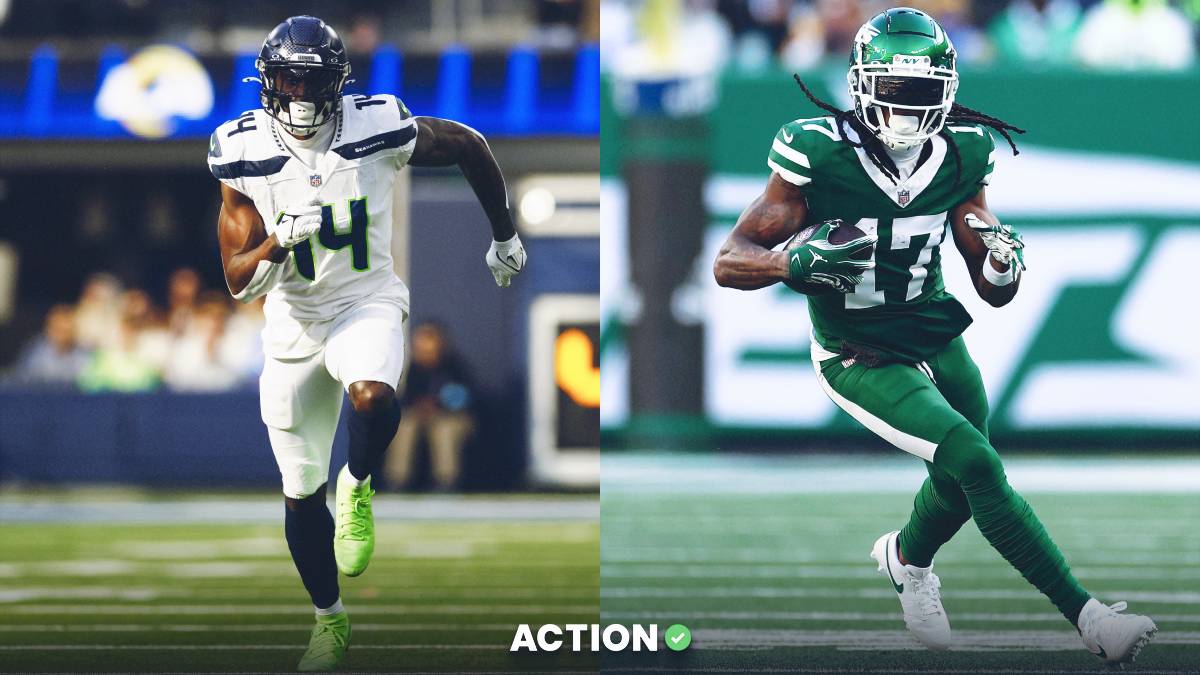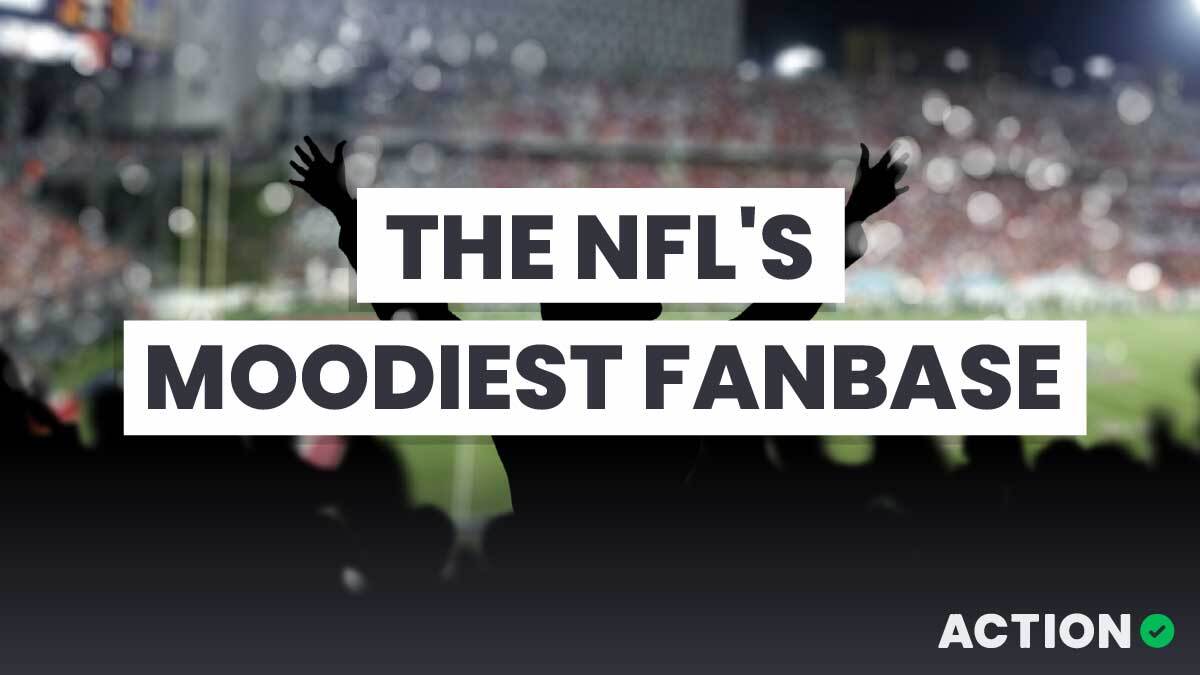Action Network senior editor Bryan Mears introduced the funnel defense metric last season, and after a brief hiatus, it has made its glorious return.
These ratings use advanced data to analyze situations in which teams are more likely to pass or run than they usually do. For a comprehensive explanation of how Bryan developed this metric, check out his take here.
Let's start with a brief recap, then dig into the Wild Card Round ratings and how to leverage them.
Funnel Defense Explained
Funnel defenses are successful at defending either the run or the pass, but not both. Strong funnel defenses are so good against either the run or the pass that they tend to "funnel" offensive play-calling toward their complementary weakness.
Measuring the Strength of a Funnel Defense
Using data to quantify the strength of a defensive funnel is complex. We must weigh several factors simultaneously:
- How good is a defense versus the running game and passing game? We employ Football Outsiders’ DVOA metric to measure this.
- What is the difference between DVOA production defending the run versus the pass? If the differential is great, it would imply the probability of a funnel.
- How good is an offense in the running game and passing game? We can use DVOA here, as well.
- What is the difference between offensive DVOA production?
- What are the offense’s typical run/pass splits?
Our metric weighs each of these statistical factors and produces weekly matchup-based ratings for each NFL team.
Wild Card Round Funnel Ratings
Check out our live odds page for the latest lines, spreads, totals and betting percentages.
Potential Shootout Games
By averaging the pass funnel ratings for both teams in a given matchup, we can more easily identify games that could favor a passing-game script on both sides. Heavy passing volume presents an opportunity for a potential shootout.
Consider rostering or stacking players from these high-volume games in DFS, and also consider taking the over on games toward the top of this list.
Indianapolis Colts at Houston Texans
This game has the highest combined pass funnel rating (76.21) and highest Vegas total (48.5) among this weekend's wild-card games. But, of course, this is only a four-game slate.
Nonetheless, when compared to all the regular-season games for which we've produced pass funnel ratings, this week's matchup ranks tied for the fifth-highest combined pass funnel rating of the season. The Colts' 85.49 team pass funnel rating is also the 11th-highest this season.
Since we relaunched our funnel ratings in Week 8, games with a combined pass funnel rating of 70.0 or higher have averaged 51.1 points per contest. The league average over that same span is 46.0. That +5.1 Plus/Minus reinforces the strength of this potential passing shootout.
Andrew Luck and Deshaun Watson have experienced massive improvements in passing and fantasy production in these teams' two regular-season meetings.
Of the two, Watson likely offers the better floor projection due to his elite rushing upside. Over his past six games, Watson has averaged 7.7 rush attempts for 46 yards and 0.67 touchdowns per game. Over that span, he's provided 8.6 average fantasy points from his rushing statistics alone.
However, Luck could offer the higher ceiling — especially when considering his previous production against the Texans. He's also $300 cheaper on DraftKings.
The most obvious — and likely most-rostered — pairing with Luck would be T.Y. Hilton. The wide receiver has been on a tear in his past seven games, averaging 9.4 targets, 6.7 receptions and 120 receiving yards per game. Hilton also draws an excellent matchup against the Texans defense, which ranks 31st in pass defense DVOA against No. 1 wide receivers.
However, Hilton boasts just a 25% target share — mediocre for No. 1 wideouts — while opposing wide receiver DeAndre Hopkins is averaging a 38% target share and 48% air yards market share over his past three games.
Demaryius Thomas (Achilles) is out for the season, Keke Coutee has battled on- and off-again issues with a hamstring injury and DeAndre Carter's value is likely dependent on Coutee's health. Plus tight ends Ryan Griffin, Jordan Akins and Jordan Thomas have not produced meaningful consistency or aptitude as pass-receivers over the last six weeks.
That leaves Hopkins as the unquestioned, nearly-unopposed receiving option for the Texans. In theory, he would stand to gain the most in a passing shootout, which makes him a high leverage play this week.
To round out the possible list of contenders, Eric Ebron and Dontrelle Inman could also be viable. Ebron has cooled off lately in terms of his volume and yardage but remains an elite touchdown threat. This makes him a possible tournament play every week.
Inman is battling shoulder and finger injuries but is probable to play. Over his past two games, he's averaged 16.7 PPR points (14th among wide receivers over that span), 4.5 receptions, 61.5 yards and a touchdown per game.
Other Notable Team Funnels
To analyze the other six teams, I'll appeal to season-long pass funnel averages.
I examined each team's weekly pass funnel ratings and cross-referenced them against their resultant pass-rate in each matchup, then ran a Pearson's correlation for those data arrays, yielding an "r"-value for each team. That correlational coefficient reflects how strong a team's pass funnel rating relates to its pass-rate.
So if a team boasts a coefficient of, say, r=0.40, we can assume that it is generally more prone to being funneled — either to the run or to the pass — according to our metric. But if a team's coefficient approaches zero, that suggests no meaningful relationship between pass funnel ratings and resultant pass-rate.
Negative correlations indicate that a team on average runs more in advantageous passing matchups — or passes more in advantageous rushing matchups.
Chicago Bears
- Correlational Coefficient: r=0.735
- Current Pass Funnel Rating = 45.16
- Season Average Pass Funnel Rating = 38.47
Chicago boasts the highest Pearson's correlation of any team this season by a wide margin. This suggests that Matt Nagy is particularly prone to alter play-calling tendencies according to matchup — as defined by our funnel ratings.
In games that the Bears have drawn a pass funnel rating of 45.16 or higher, they've passed on average on 57.63% of offensive plays. In games with a pass funnel rating below 45.16, their pass-rate drops to 48.35% on average.
This suggests that the Bears could offer elevated passing opportunities for Mitchell Trubisky, Allen Robinson and Co., especially against the Eagles' porous secondary.
Baltimore Ravens
- Correlational Coefficient: r=0.535
- Current Pass Funnel Rating = 37.10
- Season Average Pass Funnel Rating = 50.17
The Ravens have averaged a pass-rate of 49.07% in games with a pass funnel rating of 50.17 or higher; that average dips to 38.43% in games with a pass funnel rating below 50.17.
Assuredly, Lamar Jackson taking over under center likely plays a role here. Baltimore's offense has dramatically changed since he took the helm in Week 11. Since then, the Ravens' pass-rate has plummeted to just 36.54%.
The truth is: You don't really need a pass funnel rating to project the Ravens offense at this point. You can bank on Baltimore executing an offensive game plan centered on the run with Jackson, Gus Edwards and the ascending Kenneth Dixon.
Dallas Cowboys
- Correlational Coefficient: r=0.430
- Current Pass Funnel Rating = 33.87
- Season Average Pass Funnel Rating = 35.28
Unlike Baltimore, the Cowboys have not undergone quarterback or offensive scheme changes this season. Similar to the Ravens, however, they do boast one of the most run-centric offenses in the league.
For those reasons, Dallas' correlational coefficient is far more useful in projecting game script. However, their current pass funnel rating is so close to their seasonal average that statistically it doesn't tell us much.
Since acquiring Amari Cooper in Week 9, the Cowboys have averaged a pass-rate of 59.63%. Expect more of the same against the Seahawks.
Philadelphia Eagles
- Correlational Coefficient: r=0.426
- Current Pass Funnel Rating = 53.22
- Season Average Pass Funnel Rating = 54.48
Philadelphia — like Dallas — has a current pass funnel rating that is eerily close to its season average. So it might be wise to treat this matchup against the Bears as "business as usual."
Still, for what it's worth, the Eagles' pass-rate is 66.84% in games with a pass funnel rating above 54.48 and 57.23% in games with a pass funnel rating below that season average. That result is pretty drastic, but it's hard to apply that finding in good faith considering Philadelphia's current pass funnel rating.
Also complicating matters is, of course, the Bears' elite defense. No matter what advanced metrics you consult, Chicago projects favorably in this matchup due to the oppressive, turnover-inducing force field that is their defensive unit.
Nonetheless, opting to target Eagles' players would grant you significant leverage in tournaments. Few DFS players will be willing to attack the Bears defense that boldly. However, proceed with caution: If you bet on "playoff Nick Foles," you're doing so against statistical wisdom in favor of game theory considerations.
Seattle Seahawks
- Correlational Coefficient: r= -0.198
- Current Pass Funnel Rating = 54.84
- Season Average Pass Funnel Rating = 41.13
Seattle's Pearson's coefficient produces a negative result, which means that pass funnel rating and pass-rate are inversely correlated. So when the Seahawks draw a particularly advantageous passing matchup, they actually tend to run the ball more instead.
However, their negative correlation does not remotely approach the scientific standard for significance (+/- 0.40), so this result can — and should — be easily dismissed. Our sample size is admittedly small for all these calculations. It's most likely that this result is an anomaly.
Instead, a more appropriate interpretation is to view Seattle as generally resilient to matchup. Much like the Ravens, the Seahawks are likely going to do what they do best: Employ a run-heavy approach with a tactical, low-volume but efficient passing attack.
Los Angeles Chargers
- Correlational Coefficient: r= -0.277
- Current Pass Funnel Rating = 48.39
- Season Average Pass Funnel Rating = 48.28
Like the Seahawks, the Chargers produce a negative correlation for the season. This finding should also be mostly dismissed as noise.
On top of that, the Chargers' current pass funnel rating is nearly identical to their season-long average, so there's little-to-no edge to be gleaned here. Instead, focus on Baltimore's elite defense.
The Ravens shut down Philip Rivers a couple weeks ago on the road, which is typical for them this season. They are undoubtedly one of the top five defensive units in the league, and their offense is also adept at ball control. As a result, Los Angeles could contend with limited offensive opportunities on top of a difficult matchup.
Be cautious when targeting Chargers players this week.


